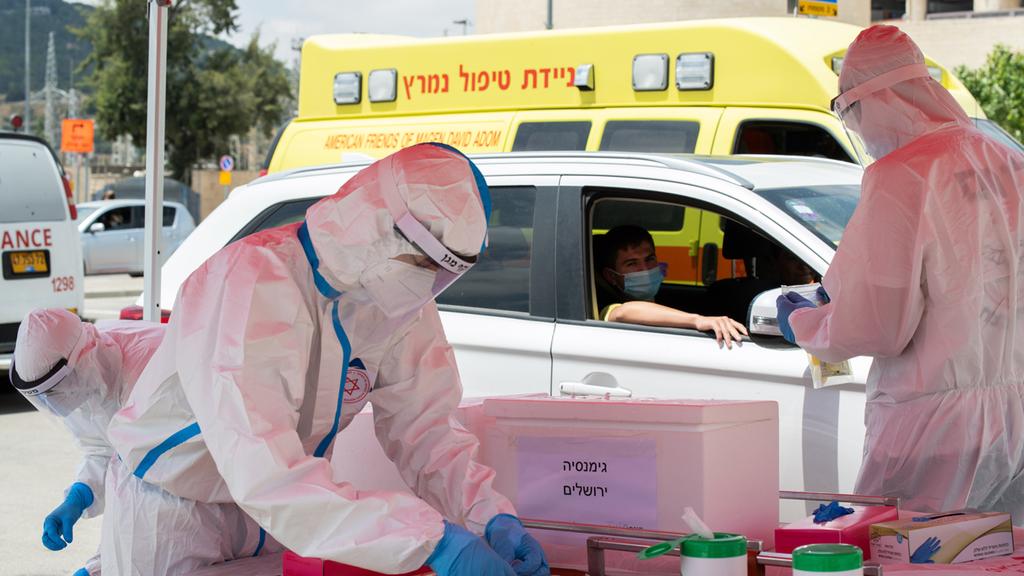Israel is still in the midst of the first wave of coronavirus infections, said an expert on Sunday.
On Friday, 113 new infections were reported in Israel, the highest number since the beginning of May.
Prof. Eran Segal from the Weitzman Institute, who oversees the research facility's public questioners regarding the virus, said that since the end of the lockdown there has been a rise in people reporting they suffer from symptoms attributed to the pathogen.
However, Prof. Segal explained that the number of reports is still lower than it was during the epidemic.
"On the national level we see a rise of 30% in reports regarding fever and high temperatures and a 60% rise in reports on shivers and chills," said Prof. Segal.
"We also see a sharp rise in people who say they don't don protective face masks when going outside."
2 View gallery


Tel Aviv residents fill the city's cafes and resturants on Friday
(Photo: Moti Kimchi )
According to the data, Segal said, there is a significant rise in reports of people suffering from symptoms such as shortness of breath, confusion, diarrhea, nausea, exhaustion and shivers.
There has also been a mild rise in reports of people suffering from cough.
Prof. Segal said the data points to the reality that Israel is still at the grips of the first wave of infections.
"We're still not done with the first wave. It's ending means no infections in Israel – which is not the reality," said Prof. Segal.
"We see that at the moment we reopened the schools, the number of infections rose, which in my opinion are still part of the first wave. We must continue to be careful and adhere to public health directives so we may be able to go back to full normality."


